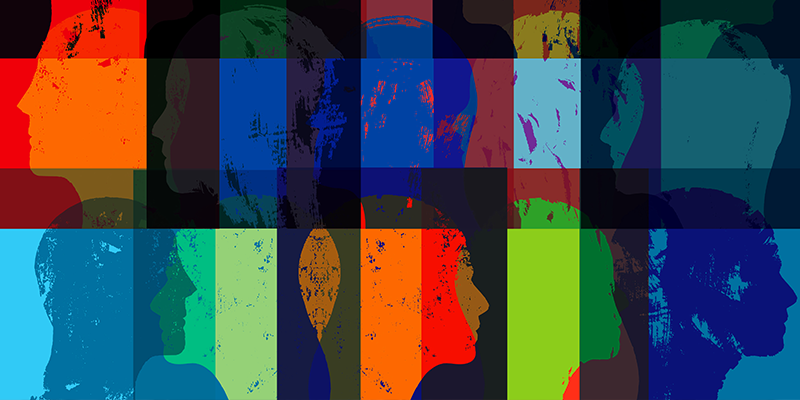The Commission’s first annual report is a valuable resource for organisations involved in helping disabled students to succeed in higher education.

The Disabled Students’ Commission’s (DSC’s) Annual Report 2020-2021: Enhancing the disabled student experience is a new resource for universities, colleges, government bodies and third sector organisations supporting disabled students’ access, experience and success in higher education.
The DSC, announced by the government in June 2019, is an independent group of experts committed to bringing about positive change for disabled students. It is chaired by Professor Geoff Layer, vice-chancellor of the University of Wolverhampton. Chris Millward, the Office for Students’ (OfS’s) Director for Fair Access and Participation, is a commissioner.
The DSC is tasked to:
- Advise, inform and challenge the English higher education sector to improve models of support for disabled students – this includes higher education providers, sector agencies, regulators and the government
- Identify and promote effective practice that helps students with disabilities have a positive and successful experience at university.
Challenge, support and influence
Within weeks of the commission’s initial meeting, the first national lockdown in England was announced. The DSC worked with universities, colleges, government departments and third sector organisations to understand the impact of the coronavirus pandemic on disabled students.
It held a series of roundtables with universities, colleges, sector representatives and disabled students to understand their needs and experiences.
The findings were summarised in two publications: Three months to make a difference and a guide outlining considerations for students when applying to university in light of COVID-19. These publications, together with the DSC’s annual report, provide the sector with new evidence and challenges in the pursuit of improved support for disabled students.
"I am proud of all that the DSC has achieved in its first year in unexpected and difficult circumstances. The commissioners were able to quickly adapt to addressing the new and exacerbated challenges faced by disabled students due to the pandemic. The commission has posed important challenge to universities and colleges, and is empowering students to seek responses to these. I have no doubt that the publications produced by the DSC will provide invaluable insight for universities, colleges and national bodies like the OfS and we will work with the commission to make sure change is happening on the ground."
Chris Millward, Director for Fair Access and Participation and DSC commissioner
Considerations from the report
The DSC annual report summarises the group’s work to date and outlines its work plan for the next two years. The plan focuses on five objectives:
- To promote improved and enhanced access and transition to higher education for disabled students.
- To promote an inclusive student support and wellbeing approach.
- To promote and improve inclusive learning and teaching.
- To seek to increase the employability of disabled students.
- To inform the sector of progress with enhancing the experience of disabled students.
The report also identifies four themes for future research:
- The implications of the rapid shift to online learning for disabled students, recognising that this is having differential impacts – benefitting some disabled students but creating additional challenges for others.
- The importance of understanding the intersectionality between disability and other characteristics in providing support for disabled students.
- Increased engagement with disabled students, at all levels of study and pathways.
- New research and opportunities to deepen understanding of disabled students’ lived experience and for disabled students’ voices to be central to this.
New challenges for the sector
The DSC has challenged universities, colleges, sector organisations, government and the OfS to look at how to reduce the burden for disabled students in higher education. The Disabled Students Allowance and the admissions process are important systems, with which many if not most disabled students must engage, and can significantly impact their higher education experience.
The commission is working with UCAS to provide comprehensive advice and support to disabled students during the admissions cycle. The OfS will continue to work with the DSC and other bodies to minimise the burden for disabled students.
The DSC has asked the OfS to consider higher education providers’ responses to the recommendations in Three months to make a difference as part of our access and participation monitoring process. We will be looking at how the recommendations have been implemented when universities and colleges report on the impact of the coronavirus pandemic as part of their monitoring returns.
Additional resources
The DSC has a role in providing effective practice and guidance to the sector. Much of this has so far been in response to the coronavirus pandemic, including providing evidence to Sir Michael Barber’s Digital teaching and learning review.
The DSC annual report provides further information on the experiences and needs of disabled students with different impairment types. It brings together an analysis of the advantages and disadvantages of blended learning on this basis. It also provides a deeper review of available disability data that indicates differences in degree attainment and rates of unemployment outcomes according to impairment type.
Looking ahead
The OfS will continue to work with the DSC and the sector to improve disabled students’ higher education experience and outcomes. We will consider their recommendations and insights as part of our wider remit of improving access and participation for disabled students, for example through regulating access and participation plans, promoting effective practice and disabled students premium funding.

Comments
Report this comment
Are you sure you wish to report this comment?